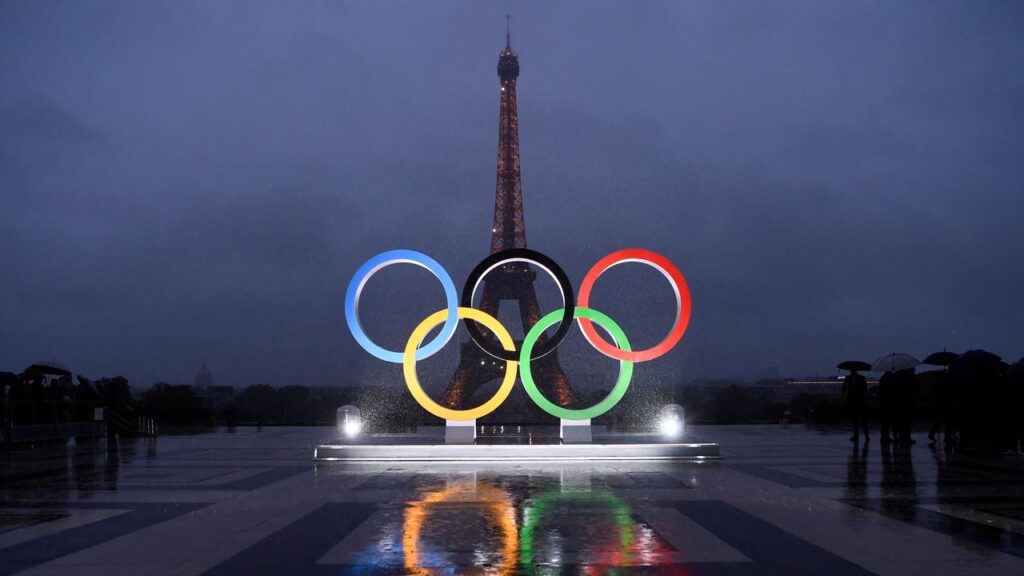A $230 million disaster hit France 50 days before the Paris Olympics, bringing a national icon to breaking point.
The company was bought out of near bankruptcy in 2005 and is the main supplier for the French athletes at the Paris Olympics, which begin in less than 60 days.
Shares in Le Coq's Swiss holding company Airesys were suspended from trading on the SIX Swiss Exchange on Monday after the company missed the deadline for announcing its 2023 financial results, which had been postponed until April.
The company was on track to generate more than $230 million in revenue in 2022, but ongoing operating costs are putting the company in a tougher position.
The group has not commented publicly on the suspension, saying only in April that it needed additional time to prepare its figures “pending the completion of various inputs and their validation.”
Le Coq, known for its rooster logo that has adorned the shirts of French sports teams for more than a century, needed a 10 million euro ($10.8 million) government-guaranteed loan early last year because of mounting losses.
The Olympic rings are installed on the Eiffel Tower. Photo by CHRISTOPHE SIMON / AFP and Instagram, courtesy of Le Coq Sportif.
The government's involvement reflects the group's strategic importance to the Paris Olympics, which ran from July 26 to August 11, as it is a supplier to almost all of France's sports federations except for a few such as football and athletics.
“We are in the final stages of delivery and production and, of course, deliveries will be made to all (sports) federations before the Olympics,” a company spokesman told AFP on Tuesday.
The company acknowledged that there were “some delays in payments to suppliers.” French Olympic Committee president David Lappartien, who recently visited the company to check deliveries “sport by sport,” told reporters last Thursday that there had been “some delays” for some federations.
“It's a little tight but I'm OK. This visit has put me at ease,” he added.
Another French company playing a key role in the Paris Olympics, IT and cybersecurity supplier Atos, is also in deep financial trouble, with the French government considering nationalising its strategic operations.
Le Coq Sportif uniform worn during the torch relay. Photo by Angelos Tzortsinis/AFP.
Le Coq Sportif Headquarters. Photo: Instagram.
Some in French sporting circles have long questioned the decision to award the prestigious 2020 Olympic contract to Lecoq, which has reported losses of around 10 million euros in the first half of 2023.
The company is expected to make a loss of around €4 million in 2022, after losing €10 million the previous year.
The company's shares have nearly halved over the past four years, with the decline accelerated by the coronavirus crisis and rising energy prices due to Russia's invasion of Ukraine.
“There has been panic for the past few weeks. Everyone is looking for a Plan B to avert disaster,” a French Olympic official told AFP, speaking on condition of anonymity because of the sensitivity of the issue.
“They're very worried.” “We didn't understand when they got the contract,” said another official, speaking on condition of anonymity. “Everybody knew when they got the contract that their situation wasn't very good.”
Le Coq Sportif will return as a supplier to the French Olympic team for the 2022 Beijing Winter Olympics for the first time in 50 years.
The company's heyday was from the 1950s to the 1970s, helping to create a retro image that appealed to fans of its shoes and clothing.
Le Coq Sportif will supply the Paralympic team. Photo from Le Coq Sportif's Instagram.
France team tracksuits. Photo: Instagram, Le Coq Sportif.
The company produced the first yellow jersey for the Tour de France, as well as the shirts for the legendary 1970s football team Ajax and Diego Maradona's Argentina team that won the 1986 World Cup.
After enduring decades of financial difficulties since the 1990s, the group was given new life in 2005 when it was bought by Airsys, run by French-Swiss businessman Marc-Henri Beauchier.
The company has renewed its ties with the Tour de France and signed deals to supply France's top-flight football club Saint-Etienne and the national rugby team.
In 2022, Airesys will begin work on a factory expansion at its historic headquarters in Romilly-sur-Seine, where it makes costumes for the French Olympic and Paralympic teams, according to its annual report.
Some sports, such as judo and cycling, have received their equipment but officials at French sports federations who are still waiting said the delays were frustrating.
“This is an additional logistical issue that has to be addressed at the last minute and quite frankly there are other things to worry about at the moment,” he said, speaking on condition of anonymity.

